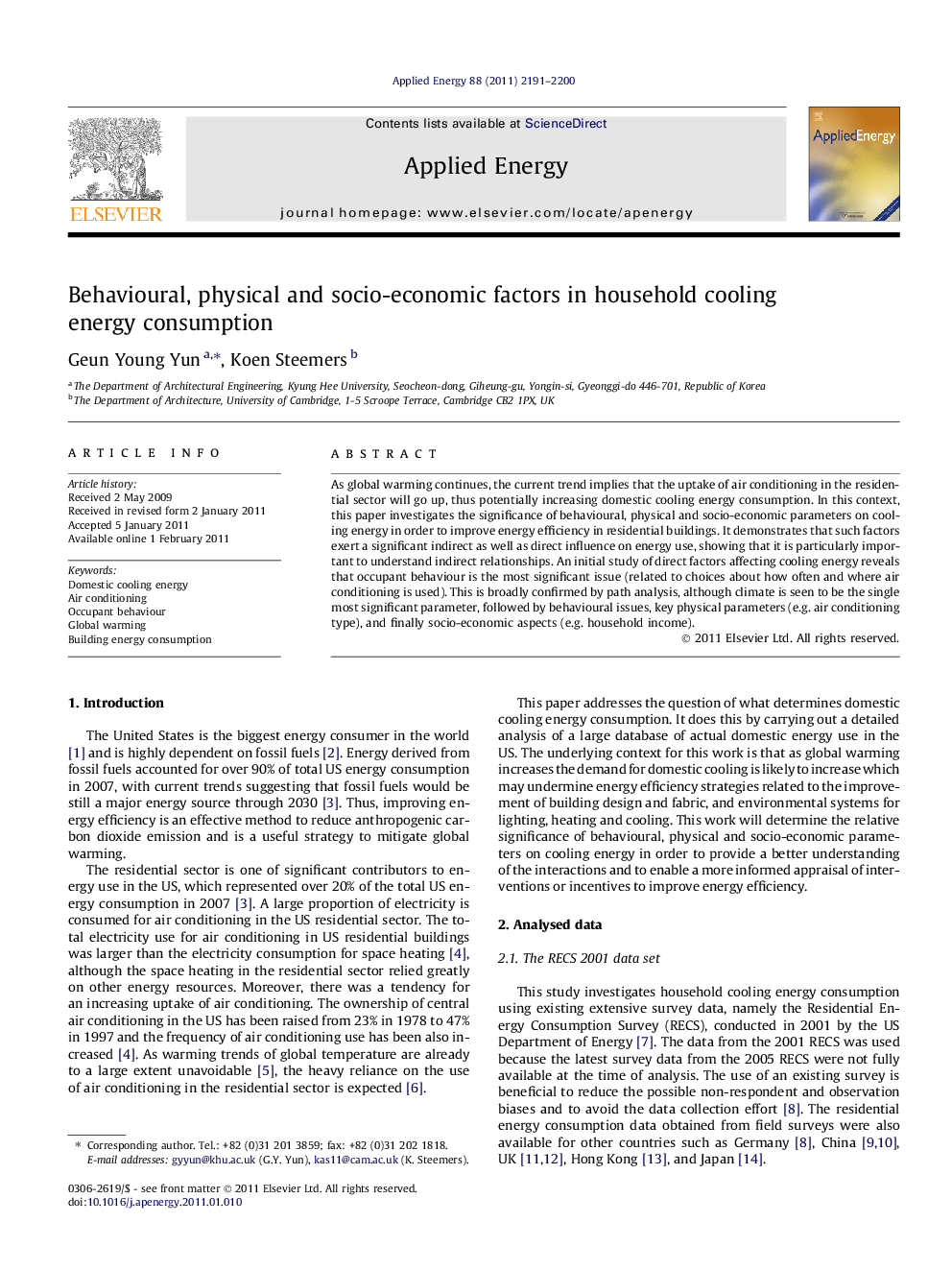| کد مقاله | کد نشریه | سال انتشار | مقاله انگلیسی | نسخه تمام متن |
|---|---|---|---|---|
| 244151 | 501943 | 2011 | 10 صفحه PDF | دانلود رایگان |

As global warming continues, the current trend implies that the uptake of air conditioning in the residential sector will go up, thus potentially increasing domestic cooling energy consumption. In this context, this paper investigates the significance of behavioural, physical and socio-economic parameters on cooling energy in order to improve energy efficiency in residential buildings. It demonstrates that such factors exert a significant indirect as well as direct influence on energy use, showing that it is particularly important to understand indirect relationships. An initial study of direct factors affecting cooling energy reveals that occupant behaviour is the most significant issue (related to choices about how often and where air conditioning is used). This is broadly confirmed by path analysis, although climate is seen to be the single most significant parameter, followed by behavioural issues, key physical parameters (e.g. air conditioning type), and finally socio-economic aspects (e.g. household income).
Journal: Applied Energy - Volume 88, Issue 6, June 2011, Pages 2191–2200